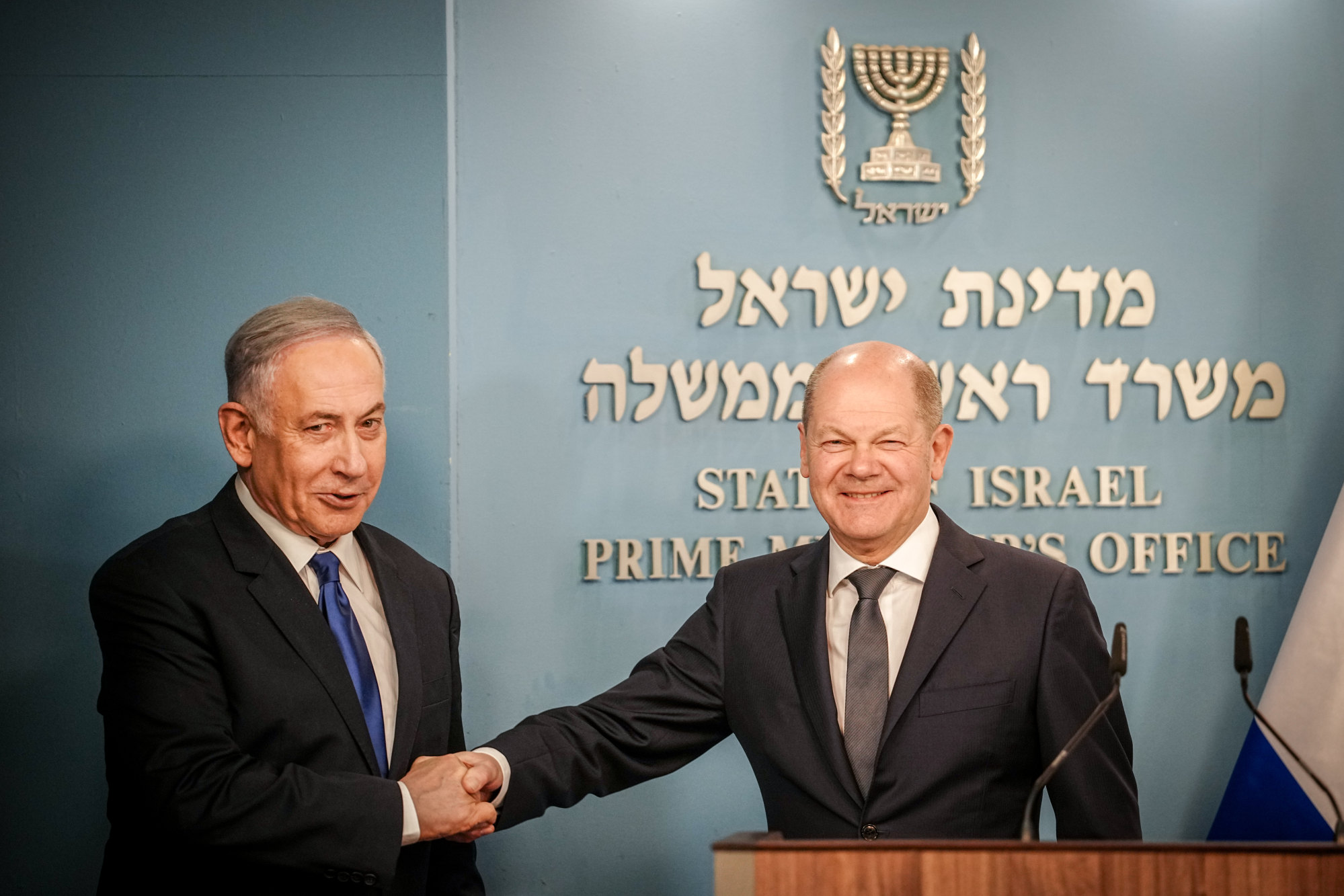German Chancellor Olaf Scholz on Sunday called for a deal to free hostages held in war-ravaged Gaza accompanied by a “longer-lasting ceasefire”, as warring parties geared up for more talks.
“We need a hostage deal with a longer-lasting ceasefire,” Scholz said during a joint press appearance in Jerusalem with Israeli Prime Minister Benjamin Netanyahu.
“We understand the hostage families who say after more than five months, ‘The time has come for a comprehensive hostage deal for saving those who are still captive’.”
Scholz’s visit came the same day Israeli officials were set to meet to discuss the “mandate” of a negotiations team expected to participate in a new round of talks in Qatar aimed at securing a new truce between Israel and Hamas.

Netanyahu is under intense domestic political pressure to free hostages seized during Hamas’ unprecedented October 7 attack on southern Israel, which started the Gaza war now in its sixth month.
Hamas took about 250 Israeli and foreign hostages on October 7, and Israel believes about 130 of those remain in Gaza including 32 presumed dead.
The attack resulted in the deaths of about 1,160 people, mostly civilians, according to an Agence France-Presse tally of Israeli figures.
Israeli’s retaliatory military campaign to eliminate Hamas has killed at least 31,645 people, mostly women and children, according to the health ministry in Hamas-run Gaza.
In Jerusalem on Sunday, Scholz called for a “negotiated two-state solution” to the Israeli-Palestinian conflict, saying “terror cannot be defeated with military means alone”.
Earlier on Sunday, Netanyahu said Israeli troops would pursue a planned ground offensive in southern Gaza’s Rafah that has spurred fears of mass civilian casualties, given that the majority of Gazans have sought refuge there.
Scholz voiced concern about what the offensive would mean for civilians.
“The military logic is one consideration, but there is a humanitarian logic as well. How should more than 1.5 million people be protected? Where should they go?”


